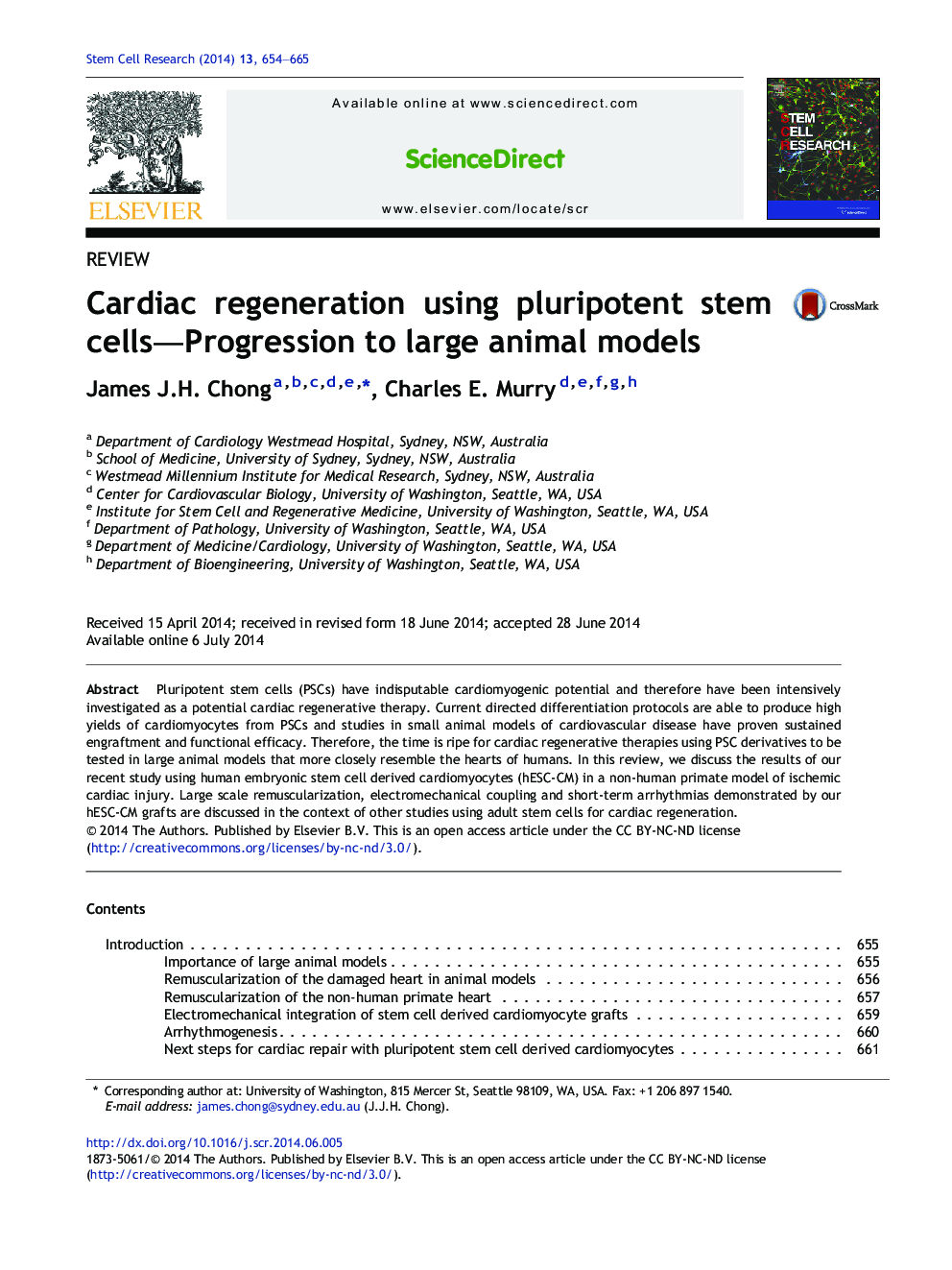| Article ID | Journal | Published Year | Pages | File Type |
|---|---|---|---|---|
| 2094475 | Stem Cell Research | 2014 | 12 Pages |
•Large animals cardiac disease models are crucial to confirm results of small animal studies.•Pluripotent stem cells (PSCs) have indisputable cardiomyogenic properties.•PSC-cardiomyocytes (CM) can remuscularize infarcted non-human primate hearts.•Large PSC-CM grafts are electromechanically coupled to the host heart.
Pluripotent stem cells (PSCs) have indisputable cardiomyogenic potential and therefore have been intensively investigated as a potential cardiac regenerative therapy. Current directed differentiation protocols are able to produce high yields of cardiomyocytes from PSCs and studies in small animal models of cardiovascular disease have proven sustained engraftment and functional efficacy. Therefore, the time is ripe for cardiac regenerative therapies using PSC derivatives to be tested in large animal models that more closely resemble the hearts of humans. In this review, we discuss the results of our recent study using human embryonic stem cell derived cardiomyocytes (hESC-CM) in a non-human primate model of ischemic cardiac injury. Large scale remuscularization, electromechanical coupling and short-term arrhythmias demonstrated by our hESC-CM grafts are discussed in the context of other studies using adult stem cells for cardiac regeneration.
